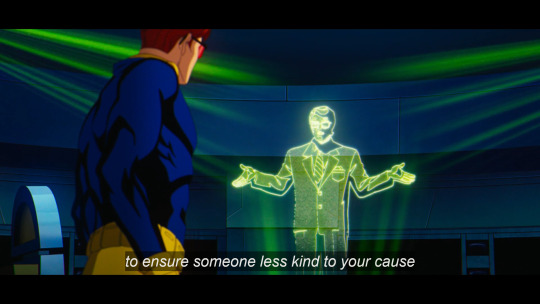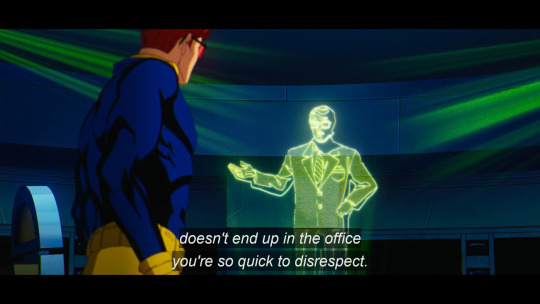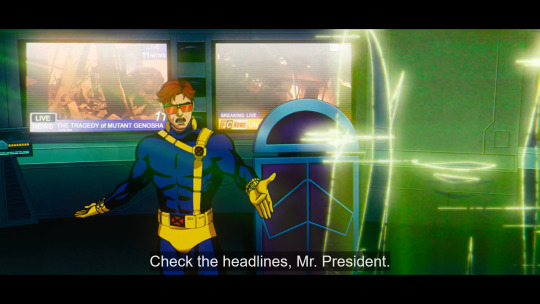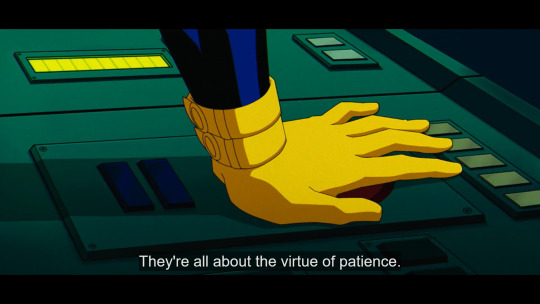#political compass polls
Explore tagged Tumblr posts
Text
ok! time for part two out of six of the C!quackity political compass polls. please refer to part one for disclaimers, all of these are what you think c!quackity would think, not your own values.
alternate phrasing: people who are rich have more in common with other rich people globally than the poorest in their own nations, and the same thing applies to the poor.
might be tricky to apply to cannon dsmp, so you might wanna get a little outside the box here.
22 notes
·
View notes
Text
#polls#political compass#this is based on a theory I vaguely remember hearing in a YouTube video talking about Prager u
14 notes
·
View notes
Text

New political compass!
1 note
·
View note
Text
#politics#poll#leftisim#leftist#right wing#communism#socialism#capitalism#anti capitalism#progressive#conservative#liberal#democrat#republican#???#text post
748 notes
·
View notes
Text
"“Always ask yourself: Why is this lying bastard lying to me?” Perhaps these blunt words of advice for journalists interviewing politicians, attributed to the late foreign correspondent Louis Heren, have endured because they are seen as self-evidently true. That politicians lie is viewed as established fact.
Public confidence in lawmakers plunged to a record low last year in the wake of Partygate and other scandals: only 9% of British adults polled by Ipsos said that they trust politicians to tell the truth. Without trust, says Jennifer Nadel of the thinktank Compassion in Politics, faith in democracy is undermined. “If we can’t trust what politicians are saying, how can we decide who to vote for? We need to be able to rely on our politicians to tell the truth,” she explains.
Compassion in Politics has long been campaigning to introduce criminal penalties for political lying, with a petition launched in 2019 attracting more than 200,000 signatures. In a surprise move two days before the UK’s general election, the Welsh government committed to passing legislation that would make lying illegal for Senedd members and candidates, having previously opposed the measure. Under the plans, those found guilty of deliberate deception by an independent judicial process would be disqualified from office.
“We’re excited and optimistic,” Nadel says. “It’s unprecedented that the government has agreed to take this measure forward.” Although some countries have limited penalties for politicians who lie during election campaigning or when giving evidence to committees, Wales is the first in the world to propose legislation that would apply more broadly to lawmakers and candidates.
Compassion in Politics’ next challenge is to persuade Westminster to follow suit by banning MPs and parliamentary candidates from lying.
The campaign sprung from concern at the rapid normalisation of lies in politics. “We are slipping at an alarming speed into a post-truth era,” says Nadel. “We only have to look at what is happening in the United States.”
Fact-checkers at the Washington Post found that Donald Trump made 30,573 false or misleading claims during his presidency, averaging about 21 a day. “America is a warning of what can happen if this problem is allowed to go unchecked,” Nadel believes. “[Our proposals] are designed to stop [the UK] from getting to that stage.”
Polling shows wide public approval for the measure, with 72% backing criminal penalties for politicians found guilty of deliberate lying in an Opinium survey conducted for Compassion in Politics in May. Though it is not yet clear whether Wales would make lying a criminal offence, Nadel says: “If the same goal of disqualifying politicians who deliberately misrepresent the facts can be achieved through using the civil law, then we’re happy.”
A private member’s bill to ban lying in Westminster, introduced by Plaid Cymru MP Liz Saville Roberts in 2022, had cross-party support. “We will be looking to build [on that] and win the support of the Labour government to introduce the measure,” Nadel says...
“I think it’s important to signal a different set of norms, and try to arrest a slide towards the acceptability of attempts to deceive in public life.”
For Compassion in Politics, another challenge is persuading doubters that banning lying in politics is even possible. “There’s this belief that it’s too complex to stop,” says Nadel, who qualified as a barrister. “But the law prevents fraudulent misrepresentation in other walks of life. This is something that courts adjudicate on all the time. Why shouldn’t it apply to politicians?”"
-via Positive.News, July 26, 2024
#wales#united kingdom#uk#senedd#westminster#uk politics#lying#donald trump#2024 election#good news#hope
327 notes
·
View notes
Text
Qasim Rashid at Let's Address This:
On May 20, 1962, JFK delivered an impassioned speech at Madison Square Garden in favor of universal healthcare. Then, decades later in 2006 nearly 7 in 10 Americans believed the government should fund healthcare. And now, a new Gallop Poll reports that 62% of Americans believe in guaranteed universal healthcare. And despite this decades of support, not a single Presidential candidate this cycle had the courage to run on this wildly popular platform. Over the last week I’ve written in detail about America’s Violent Health System, and likewise, shared a deeply personal story about When Insurance Rejects Life Saving Care about our daughter Hannah Noor.
In response, I’ve received overwhelming empathy and compassion from conservatives and liberals alike, Republicans and Democrats, from those who self-identify as “Ultra MAGA” to those who label themselves as “Bernie Social Democrats.” Americans get it. Healthcare needs to be a human right. Sadly, politicians, Republicans and too many Democrats alike, don’t get it. They worship at the altar of corporate donations. The health insurance industry annually spends a harrowing $700,000,000 on lobbying politicians to do their bidding. And that doesn’t even include what they spend on SuperPACs to block out candidates who dare run on a platform of guaranteed universal healthcare. Those same healthcare corporations then engage in a mass media blitz of misinformation and disinformation to convince people to vote against their own self-interests. In reality, guaranteed universal healthcare is a proven model adopted by every single developed nation on Earth (and many lower income developing nations). And while I do not have $700,000,000 to counter the lobbying propaganda health insurance corporations infuse into our politics, I do have access to the facts that health insurance corporations hope the American people don’t realize.
Myth 1: We Can’t Afford Universal Healthcare
Fact: The opposite is true. Dozens of studies prove that universal healthcare will save Americans billions of dollars annually. In fact, 22 studies reviewed all concluded that universal healthcare would save approximately $450 billion a year. And this is a universal conclusion. For example, “Even the Mercatus Center, a right-wing think tank, recently found about $2 trillion in net savings over 10 years from a single-payer Medicare for All system. Most importantly, everyone in America would have high-quality health care coverage.” Moreover, we cannot forget that right now approximately 73 million Americans are on Medicaid, 68 million Americans are on Medicare, and 10 million Americans are on Tricare. That means that of our nation’s 335 million people, approximately 151 million are already on a universal (or near universal) healthcare model. And guess what? These programs each cost significantly less than the exploitative for-profit healthcare model. The overhead on these programs is 2-3%, while the overhead on for profit healthcare is 20%, plus a near unlimited mark up on prescription drugs. In this we have a side by side comparison of access to the exact same doctors and medications, except one has a nominal mark up and the other has a 10X markup. It doesn’t take an MBA in finance to understand that the same product or service without the massive markup is the smarter path to take. The only thing we cannot afford is for the current exploitative for profit model to continue.
Myth 2: If Costs Go Down, So Does Quality of Care
Fact: This is simply not true. It is important to understand why costs decrease, because contrary to the myth, every single one of the above studies found that quality of care would not decrease with universal healthcare.
[...]
Myth 3: Universal Healthcare Puts Millions Out of Work
Fact: What would happen to the roughly 1.8 million Americans who work in medical billing? This is a great question and has a robust answer that I break down in three parts. First, remember that about 40% of these jobs are already in the Medicaid and Medicare and Tricare industries—which is essentially universal healthcare for a portion of society. Therefore, we’re talk about roughly 1 million jobs, which admittedly is still a large number. What to do with those? Well, hence the second point. Expanding Medicare to accommodate another 175 million people will necessarily require medical billing professionals and administrators to do those jobs. Therefore, the question is not about eliminating jobs, but about transitioning workers from the for profit exploitative system, to a non for profit system that prioritizes access to healthcare. Likewise, remember that ending the for profit system saves us at least $450 billion annually. These resources give us options. For example, these are excellent resources that could be spent on a lengthy 2-year salary severance to those in medical billing who do lose their jobs, plus adequate funding and training to allow them to become proficient in a new job. Indeed, at $70 billion annually, four-year-public college costs a fraction of what would be saved by shifting from an exploitative for profit model, to a universal healthcare model. We cannot afford not to make the shift.
[...]
Myth 5: Universal Healthcare Causes Long Wait Lines
Fact: For primary physician appointments, Americans already wait longer under our exploitative for profit model than do people in nations with universal healthcare. Frankly, I marvel at this allegation as I reflect over the fact that it took us more than two years to get our daughter the critical life saving medication she needed, only because our exploitative for profit health insurance company refused to accept our doctor’s medical instruction. In reality, wait times in the United States are shorter only for elective surgery, but for primary care or for critical care, the United States is the worst out of any nation with universal healthcare.
Qasim Rashid wrote a solid piece debunking anti-universal healthcare lies propped up by for-profit health shills.
49 notes
·
View notes
Text
Do you hate people whose moral compass/beliefs/political views/etc do not align with yours?
A. Yes, I hate them because I believe their opinions define who they are as a person / I believe they are bad people who hate people like me and that they also want to harm people like me. Therefore I hate them
B. No, I don’t hate them. I hate their opinions, but I don’t hate them as a person because I think they are more than their opinions and that they genuinely believe what they believe is the right thing that will save/protect people (including people like me)
Edit, from the mods, since people seem to think this poll talks about the current u.s. politics: the poll actually isn’t about politics specifically but mostly about “moral values” in general. It was sent to us several months ago, we queued it and it happened to go public just now, so it’s either “bad timing” or “good timing”, considering the current situation. But the poll is more about the vaguely moral compass in general than it is about politics specifically.
This poll was submitted to us and we simply posted it so people could vote and discuss their opinions on the matter. If you’d like for us to ask the internet a question for you, feel free to drop the poll of your choice in our inbox and we’ll post them anonymously (for more info, please check our pinned post).
#poll#polls#debate#debating#incognito polls#poll time#random polls#fun polls#tumblr polls#tumblr poll#social issues#moral compass#yes or no
39 notes
·
View notes
Text
Which character are you a fan of, and where do you fall on the political compass?
For a while now, I've wondered if there is a political divide in fandom that aligns with other opinions, and I'd like to find out if there's anything to that.
Politics can be sensitive, as can fandom opinions, and I'd like to get as many answers as possible, so please refrain from discourse that could bias the poll.
This is the second of three polls that are variations on a theme.
For reference, here is the link to the test, and here is a chart.


Of course, the political compass isn't a perfect tool, so just answer based on whatever you think best reflects your politics.
There's not enough options to do a middle for this one, so you have to choose a quadrant.
(pls share for sample size!)
Fandom and politics Poll 1, Poll 2, Poll 3
109 notes
·
View notes
Text
2024 US Election Post-mortem
I need to get my thoughts out about the election. I'll split it into a few main parts. (This will be long) 1. Why did Kamala lose/Trump win?
There's 2 main reasons for the result.
1. The biggest thing isn't that Trump gained a lot (he did somewhat), but that Kamala lost hugely. Kamala ran an "strong" but status-quo style center-lib campaign. This was not the right move to capture the electorate in today's America. It hasn't been since 2012. People at every part of the political spectrum have expressed disdain with the way establishment Democrats have run things. People want change! They have since 2008. Obama convinced everyone that he represented change. Hillary lost in 2016 because they didn't get that change after 8 years, and wanted something new no matter what. Biden did a good job in 2020 of being somewhat of a change candidate, but it was really COVID that allowed him to win. I do think Trump would've won in 2020 if it weren't for the pandemic. Kamala had momentum at first because she literally was "change." Biden was hugely unpopular, and people didn't like the return to liberal status quo, even if he did do more than even Obama to bring (domestic) left-wing policies to the forefront imo. Kamala represented hope at first that we could get away from the Biden that everyone hated, and bring in a whole new kind of politics and movement that would take us out of the neoliberal malaise that was the again Biden. What happened in stead was the establishment decided that there was a contingent of Americans that were allergic to left-wing politics, and they need to be captured.
THIS IS THE MAIN POINT OF FAILURE FOR BOTH HILLARY AND KAMALA. I do not believe there is a (large) population that is inherently right-wing, and another that is centrist, and another that is left-wing. I do think there are some that you could never convince one way or another, but it's just impossible that so many people could vote for Obama, and then turn around for Trump if people had some sort of weird internal political compass that they adhered to regardless of policy. No, Trump (and the right more broadly) MADE his base. This is the other reason Trump won.
2. Trump did make some gains, though I believe the right campaign from Harris could've overcome that. I think the Trump gains are more indicative of what Harris lacked. Kamala tried to adjust her campaign to match an electorate. Trump didn't give a fuck. He said what he wanted, and people liked that. They don't care about decorum. They don't care about "unity". They want someone they think will "fight" for them. People saw Kamala bringing in the Cheneys and just saw another neolib that would flake on any conviction to grab a vote. People don't want a policy. People want a candidate with conviction. Trump was also adept at playing on people's fears and insecurities. He MADE them into Trump supporters by playing on those fears. Harris did not try to make Harris supporters by playing on fears (at least enough). She was best with the abortion stuff, but that wasn't the issue that exit polls showed people care about. The top issue was the economy. Yes, "the economy" is objectively doing better if you look at the stats, but people don't feel like it because prices are still high despite the buying power of the dollar recovering (inflation was reduced!). People felt that because corporations kept prices at pre-inflation reduction levels. Harris briefly flirted with price capping, which would be the exact sort of populist policy that directly addresses people's fears/insecurities and breaks from the status quo that could excite a mythical "Harris base" that maybe existed for 2 weeks.
It's the same with immigration. Trump created a "big lie" about the border being in crisis, and played on the truly hurting average middle-American's insecurities. You have a population that is hurting for corporate consolidation destroying small local business, that has been devastated by opioids, and is seeing the towns and culture they grew up with decay and seemingly leave them behind. Are Trump's policies going to uplift them? Hell no! Does he talk to specifically them all and directly address their insecurities though? Absolutely. In stead of addressing these people (these are the ones on the red arrow map that's been going around), she accepted the lie about immigrants and rejected making any radical policy change from the system that threw middle America under the bus.
I should say I am literally living in a small rural city in a deep-red state, so I know what they're saying. These people aren't necessarily bigots. Some are, but I think most think they aren't. I think anyone can be prone to getting caught up in a hate movement if the right buttons are pressed, and Trump deftly presses those buttons. What needed to happen was pressing the right buttons to address their insecurities and fears that doesn't rely on hate and scapegoating. This is what I think Bernie Sanders does well in general polls, but there's too much movement within the Dems to preserve the liberal status quo. That needs to change or, the Dems die. LIBERALISM IS DEAD. We address the fears that made people Trump voters, or democracy dies! Here are 2.5 other smaller reasons: 3. Sexism, Racism, and Religiosity. I will not deny that these do play a part in certain parts of the electorate. However, I don't think they're insurmountable hurdles in a general election. I think Obama's campaign is proof of this. But we shouldn't deny that there are a significant portion that wouldn't vote for Kamala for purely bigotry reasons. Hell, I know some personally. But I do think it is a mistake to blame these for our failures. WE LEARN NOTHING OTHERWISE! 4. Believe it or not, but there's just a lot of people out there that just don't care or avoid politics all together. These people aren't bad or deficient, but they just don't include thinking about politics constantly as a part of their lives. They think about the election for a few days, and then get on with their lives for 4 years and tune out everything. Generally, these people are privileged, though there's also some that have been so hurt by our system and policies, that they tune out in pure nihilism about it all. These people vote on vibes, they vote based on what those they care about support, and many just sit out the whole thing. Voter apathy is definitely a thing, and it hurst especially the left imo. I do believe the majority of people would loath Trump's policies if they actually knew what they entailed, so this apathy only takes away from the left. 5. Kamala did NOT lose due to the Gaza protest. She might have lost a bit of support by not being an empathetic foil to Trump's "glass the whole strip" rhetoric, but I don't think it made a significant difference. And I'm gonna be real with y'all; Tumblr is mostly full of it if they think they can accomplish anything with a protest vote for Gaza. I learned this in 2016. That action won't do anything, and it's too risky when a literal fascist is on the other side of the ballot. Yes, I hate that Kamala did not oppose the current Biden policy of letting genocide happen, but Jill Stein/no vote can't pressure these people in the establishment without hurting their campaign financing. The votes are in, and 3rd party votes would not have saved Kamala.
2. What happens now? What is a 2nd Trump admin like?Maybe this is a bit of copium, but I do think that Trump will still be overall very incompetent and unable to enact the worst of his policies. Terrible things will still happen (and I'll get to that later), but I think some of the catastrophizing is a bit overblown. Let's take the mass deportation policy for example. This would be a horrible campaign on the level of the worst historical genocides. He would need to create an ICE apparatus so large that it would rival the fucking gestapo. Just think of all the agents and infrastructure that would need to be developed to round up ~20million people and transport them to the border and detention facilities. There's no practical way to deport that many people. The logical end point is concentration camps. Yes, we have them already to an extent (I mean the euphemistically named "immigrant detention facilities"), but we don't have anything that could handle "mass deportation." Building the facilities, hiring the agents, buying the buses and trains, and executing the warrants all takes a lot of time and money. None of this goes unnoticed, and it won't go without resistance today. Congress still controls the purse, despite what the supreme court says about Trump's immunity to do whatever he wants. SCOTUS said he can't be prosecuted for committing a crime, not that he can break a constitutional rule. The margins are too thin in the new congress, and I genuinely do not think that he has the political tact to navigate around how much resistance he'll get. My main evidence for this is the border wall. He had all the support he needed within congress and his base to try to "build that wall." The GOP even controlled both branches of congress, and shutdown the government multiple times to try to get his way. They had a majority in the house his first 2 years. It meant nothing! He got a regressive tax cut passed, and that's about it. I know there's a lot of bullshit he can pull to push terrible things through, and he'll have ghoulish cronies that will be the actual brains behind things, but honestly, they're dumb as shit too. They're too evil for their own good. They will eat themselves alive through infighting and liberal resistance before they can start a genocidal campaign on American soil. That's not to say there will be some horrible things. Here's what I do think he'll be able to do: - Ban abortion nationwide either through the Comstock Act or SCOTUS. - Completely fuck up half of our federal institutions that keep us informed and safe (ie. dismantling or gutting of Dept. of Education, EPA, FTC, NSA, HHS, and more). - Allow for more religious integration into our public institutions like schools - Essentially turn our government into an oligarchy (or more of one than it already is) - Reverse gay marriage rights (overturning obergefell) and restricting the rights of LGBTQ+ in the public sector overall. - Exacerbate the Gaza genocide - Let Putin have his way with Ukraine - Royally fuck up the economy with Tariffs - Probably get us into some kind of overseas war - If he survives to the end of his term, I do think that our democracy will be incredibly fucked. Like, I think they'll be able to push through so many bullshit rules that we won't be able to come back unless an actual leftist populist makes huge rounds.
Overall, it's gonna suck, especially if you're LGBT in a red state. I think he'll also continue targeting undocumented migrants, but I doubt he'll be able to put together the infrastructure to genocide them. Yes, Hitler and his regime were incompetent too, but it was really the enabling act post-Reichstag fire that allowed for him to start pushing the policies that would become the holocaust. It was only at that point that he had no more resistance, and could order whatever he wants. We're definite not there yet with Trump.
3. What do we (the left) do now?Honestly, just stay vigilant, be active within your community, make connections (even with Trump voters), and don't give in to the despair. Once you're hopeless, it will only make it easier for them to keep winning. We fight against the fascists until the bitter end. The only endpoint of fascism is self destruction. I am a leftist, but I am not a revolutionary. I think armed action rarely leads to good outcomes, and history shows that. However, if we get a Reichstag fire moment or an enabling act moment, that's not the point to lose hope. If people start turning their neighbors into the gestapo-fied ICE, that's not the point to hide. These represent the time where politics should be abandoned, and an actual violent fight for freedom and liberty should begin. I pray we never come to that point. Hopefully, these next four years will look like a continuation of 2016-2020. We'll have a slow degrading of our rights, but if too many of those we all care about are hurt, we can come together and help to reverse it. I know things are super polarized and we all have our own little bubbles in society, but there comes a breaking point where too many people are hurt, and even the biggest MAGA head will have someone they deeply care about that is very hurt by Trump. This is my hope, though it unfortunately relies on things getting worse first before becoming better.
#politics#us elections#election 2024#trump#kamala harris#socialism#long post#rant#if trump becomes dictator I'll be first against the wall#say the right things when electioneering#im so tired
22 notes
·
View notes
Text



























I can't stop thinking about how this entire thing with Genosha is also echoing a real life genocide happening right now in Palestine. Every sentence that characters say seem to echo the sentiments of people that are dying in front of us. For example, Scott's comment about "if they looked a bit more human, you'd have focused on death tolls over polls" hits so close to home, because aren't Palestinians dehumanized to the point that governments don't even care about their deaths?
They only care about being called antisemitic because Israel said so, but they don't care about the fact that what is truly antisemitic in this situation is to allow the same thing that happened to Jews during the Holocaust happen to another group of people as if it was ok for them to die. It's both antisemitic and islamophobic. I can't stop thinking that Scott's frustration kind of also echoes our own with our governments and politicians who do absolutely nothing to help and only care about their politics over human lives that are being lost. And even go so far to outlaw peaceful protests simply because we as people, as a united front across borders stand with Palestine and they see it as a threat.
I personally can't imagine someone watching this show and not start feeling compassion towards the real people that suffer the same thing. If episodes 5 and 7 don't trigger understanding in you, and you still think that Israel is in the right, try to look at those mutants. Yes, they have powers. Yes, they could use them against humans, but even if some of them do, it doesn't mean every single one of them deserves to be treated as an enemy for the fact they're not the same as you.
If this cartoon ever taught me anything (and I mean both the old and the new version), then it was compassion towards those that are not the same as me. Taught me to care about people different than me.
#x-men 97#x-men 97 spoilers#x-men 97 episode 7#x-men 97 episode 7 spoilers#scott summers#president kelly#genocide#genocide in genosha#genocide in gaza#genocide in palestine
41 notes
·
View notes
Text
it's finally time to get messy. I'm polling the public so we can finally find out where c!quackity stands on the political compass according to the masses. awnser the following as you believe c!quackity would.
simplified question to the best of my (biased) abilities: if all economies merge into one big, global economy, like the EU but massive, then it should primarily serve humanity (cough cough workers) rather than the interests of massive multi-national companies.
(this test is heavily biased, - and my simplifications will probably wind up being too because I am nothing if not opinionated - and works better as a meme format than anything. AND it makes politics more about identity than opinions on specific ideas ethics and yada yada you get the point. all that being said, it's a fun and recognisable format, so yk shits and giggles folks shits and giggles.)
#political compass polls#dsmp#dsmp polls#quackity#c!quackity#politics#if anybody has an alternate simplification or I misunderstood the question please share :)
20 notes
·
View notes
Text
If you aren't sure where you stand on politics, take the test.
The goal is not to diss anyone or to prove Feanor was right or wrong. If you are curious, I am very moderate on the compass and quite moderate on Feanor too. My only agenda here is to understand why the fandom is so divided without judging it. (unless you say things are in the Silm when they are not, then I will judge it, even if you are myself ;P )
And to do chi-suare tests and colorfur charts because they look pretty and give me dopamine because you click the heart on them. ;D
I wish I could do more buckets. If a correlation appears here, I will probably do a follow-up poll.
Please no discussion of politics and no fighting about Feanor. I know the compass is not perfect, I did not make it.
28 notes
·
View notes
Text
Doesn't have to be the character you think is the most evil, just the one you most love to hate/hate to love. They suck severely but whenever they show up you can't look away.
PROPAGANDA:
Amon/Noatak - Bloodbender with a genuinely tragic backstory. Reinvents his entire identity and creates a sham political movement that exploits real tensions between benders and non-benders instead of going to therapy. Explodes at sea with his baby brother Tarrlok.
Hiroshi - Straight up tries to murder his daughter and then runs away like a coward. Bit of an elitist snob. Calls Mako a rat which is ironic considering he's the one spending a not-insignificant portion of his time skittering through a series of underground tunnels.
Varrick - Steals Asami's company and also every scene he's in. Invents the movie and immediately uses it for war propaganda. Has only a wisp of a ghost of a moral compass. Helps start at least two sectarian conflicts. Always has some kind of foot situation going on (bunions, calluses, etc.) and makes it everyone else's problem. Treats Zhu Li terribly and for some reason she agrees to marry him anyway.
Unalaq - Nasty little manipulator. Jealous of his hotter older brother so he gets him banished from their tribe. Was part of the Red Lotus plot to kidnap Korra as a baby. Has an arguably erotic encounter with the ancient Spirit of Darkness that makes him huge and also red (honestly it's an upgrade).
Raiko - Total loser who didn't want a tree growing through his office and was a massive bitch to Korra. Failpresident who coped with his re-election loss by starting the in-universe equivalent of Fox News.
Zaheer - Horrifically brutalizes Korra and then haunts her for like 4 years. Kills the Earth Queen and creates a power vacuum later exploited by Kuvira. The kind of guy you meet at a protest who seems cool at first but then he says something completely batshit that makes you want to back away slowly with your hands up.
Queen Hou-Ting - Shitty old despot whose favorite activities are abusing palace staff and bleeding her people dry. Hates animals. Literally her only redeeming quality is that she's related to Wu. Got very creatively murdered by Zaheer. Probably nobody cares about her but I needed more evil women for this poll hashtag feminism.
Aiwei - Funny little guy with some great jewelry who always knows when you're lying. Let Zaheer and Co. into Zaofu via a secret tunnel attached to his room. Currently enjoying a long vacation in the Fog of Lost Souls.
Kuvira - Created what was essentially a nuclear bomb and looked super hot while doing it. An ethnonationalist who put dissenters in camps and probably killed tens of thousands of people and was only mildly apologetic about it.
Guan - A less hot and less competent Kuvira. Brainwashes Asami, Mako, and Bolin into attacking Korra in the comics. Even more unsuccessful at politics than Raiko.
59 notes
·
View notes
Text
In Washington DC, I measure out my life in polls and heart palpitations. The polls are relentless, nail-biting, maddeningly contradictory. There are national polls, swing state polls, polls from tiny counties that predict a whole election, partisan polls designed to demoralise the other side.
There are polls on whether a candidate inspires confidence, compassion, leadership. I’ve noticed how, after a bad poll, I start looking for another that tells me numbers I like. I’ve also noticed how, after a good one, I will look for a bad poll to bring me down, as if I’m trying to prick the balloon of self-confidence and remind myself of “reality”.
But the polls never do quite take you to reality. Instead, they shape it. It’s not just what the polls are saying, or even how they were put together, that’s the great problem here – it’s how the obsessive focus on polls is symptomatic of how we view politics.
Polls make politics feel like a race, a game, a sport of feuding personalities. Who’s up? Who’s down? What tactics have they used to get one over on each other? What does it say about their personality? Words are seen as weapons with which politicians show off their ability to subvert or scare the opposition – not as substantive statements about what they intend to do.
And what sort of politician will thrive in this world where political speech is just a game? A candidate such as Donald Trump.
It was the communications professors Kathleen Hall Jamieson and Joseph Cappella who first noticed the connection between describing politics as a series of strategies and a growing cynicism among voters.
This was back in the mid-1990s, when the media was constantly analysing the rivalry between US president Bill Clinton and speaker of the house Newt Gingrich, the early iteration of today’s identity-based partisanship. Jamieson and Cappella found the media was focusing less on the issues the two were debating – often around health reform – and more on how they were competing.
The coverage fixated on who was winning, utilised the language of games and war, emphasised the performance and perception of politicians, put a new weight on polls.
This sort of coverage activated people’s cynicism about politics – the sense that it’s just a game between self-serving schemers – and then made them more cynical about the media.
Decades later, this “spiral of cynicism” is all around us: from the exploding popcorn of polls to the headlines. After Trump’s former chief of staff John Kelly compared him to a fascist last week, the Wall Street Journal wrote: “Harris uses ex-Trump chief of staff’s remarks to paint him as unfit for office”.
The question of whether Trump is a fascist or not was reduced to highlighting a rhetorical tactic. The idea that all politics is just a cynical game, and that the “mainstream media” is not really looking out for the cares of the voter, has become so pervasive it has helped pave the way for politicians who stand on sweeping away the whole edifice of democracy as we know it.
It’s no coincidence that this turn began in the 1990s, when the cold war had finished and the big philosophical debates about policy seemed to be over. Instead, politics became about entertaining performance – the era of Blair, Clinton, Zhirinovsky, Yeltsin. And the media began overgenerating coverage that replaced ideological debate with personality and tactics.
The 1990s were also when the reality show emerged as the dominant entertainment format. It initially grew out of observational documentaries seeking to understand society better by ceaselessly filming ordinary people in their homes in such a way that they would forget about the cameras and be more themselves.
It quickly became the opposite: a circus where all behaviour was for the cameras. Contestants learned to say and do the most vile things just to engineer scandal and generate attention for themselves.
American political TV debates started to imitate the same logic. In a busy primary debate, candidates only get a little sliver of airtime. The way to get more is to attack another candidate in the meanest and most personal way possible, and thus provoke them to attack you back. If you are attacked, then you are allowed more time to respond.
So you quickly got debates where supremely clever candidates sling personal abuse at each other to get more attention. The debate stage was set for reality show host Trump.
The design of most social media has followed the same incentives: rewarding taking the most extreme and often nasty statements to generate attention. And Trump has flourished on that as well.
The 1990s is when World Wrestling Entertainment (WWE) boomed, with its cabaret wrestlers pulling obviously fake fighting moves, where violence is theatre. Trump was always an aficionado of WWE, even taking part in mock fights, and a member of its hall of fame.
This year the 1990s wrestling star Hulk Hogan spoke at the Republican National Convention; Trump enters his own rallies to the theme tune of the Undertaker, who, at the height of WWE, was the “evil” foil to Hogan’s all-American “goodie”. Many of Trump’s followers apply the cultural logic of WWE to his statements. Sure, the argument goes, Trump might say some very authoritarian-sounding things – but it’s just a game.
So can we ever find a way back to reality? To issues rather than strategies? We can, and we can even use polling to do so. When pollsters recently gave voters a choice of policies, rather than personalities, to choose from in this election, the majority, including Trump supporters, preferred Kamala Harris’s.
Partisan polarisation dissolves when we change how we cover politics. We can also develop different TV political debates, which preserve the excitement of competition but repurpose them to reward collaboration instead of abuse.
Imagine a debate format where candidates had to solve a real policy problem, and show how they would work with each other and with the opposition party to achieve it. We could also scale social media platforms that algorithmically detect the commonalities in political disagreements to generate common policy solutions. Such platforms are already being used in Taiwan.
Of course, there’s appeal in fleeing from reality to the grotesque circus of politics. But if we can’t face facts, others will force us. This month, at the Wilson Center in DC, Jack Watling of the Royal United Services Institute and Sam Cranny-Evans of the Open Source Centre presented a chilling analysis of Russian weapons manufacturing and supply chains.
The slideshow featured satellite photos of munitions factories where freshly cleared tracts of land are being readied to produce more weapons. Vladimir Putin is preparing for a vast war. China’s arms production is on a wartime footing. They are not playing.
12 notes
·
View notes
Text
[Placing the prayers under a read more.]
A prayer against apathy
God of empathy and compassion, we are grateful you do not sit idly by without concern for your people. In your deep love for us, you sent your only Son to walk among us, to know what it is to be human, and to suffer on our behalf. O Lord, as your humble servants, give us the ability to look upon others with the same empathy and compassion. Protect us from being so consumed with our own lives that we fail to notice what is happening in the lives of others and the world around us. Move in our hearts, O Lord, giving us eyes to see, ears to hear, and courage to act. We pray in your Son’s name.
A prayer for a Christlike spirit
Holy Spirit, you are the Comforter and Advocate, who was present with disciples even after Jesus ascended to heaven. We pray for an openness to your work in and through us. May we resist the temptation to get caught up in fruitless arguments and defensiveness. Strengthen us to serve and uphold one another and to put the needs and suffering of others ahead of our own. Especially during this divisive election season, we pray for a gentle, loving, and kind spirit—like that of Christ, who lives and reigns with the Father and the Holy Spirit as one God eternally.
A prayer for nonviolence in our country
O Good Shepherd, you who gather us as lambs in your arms, carrying us close to your heart, we long for peace on earth as it is in heaven. In this election season, we ask that you carry our nation close to your heart. Protect us and guide us into the ways of peace. We pray specifically against violence at political rallies, polling places, debates, and other spaces where many are gathered. May we become a nation that turns our weapons into plowshares, taking on your posture of nonviolence. By the power of your Spirit, we ask for safety to prevail and that you would lead us into the ways of your peaceful kingdom. We submit ourselves and this prayer to you, Father, Son, and Holy Spirit.
A prayer for the opposing candidates
King of the universe, you who reign over all things, we submit to you our thoughts, feelings, and frustrations about the candidate we disagree with. May we not look at them with contempt, and may we be reminded that they, too, are created in your image. We pray for protection over all political candidates and their families. We humbly ask, O Lord, that you act in mighty ways in our own hearts. Give us the humility that is needed to pray for all people, not just those who think or look like us. Direct, we pray, the next president of the United States with a heart for justice and truth. Deliver us from poverty, prejudice, and oppression. Regardless of who is elected, may your will prevail by the power of your Spirit,. We ask all these things in your holy name.
A prayer for a posture of humility and against defensiveness
God of humility, you humbled yourself to the point of death on the cross. You show us the way of the servant. Rather than being motivated by pride and self-righteousness, may we, as your people, clothe ourselves with kindness, humility, gentleness, and patience. Manifest in us the ability to hold in tension the disagreement of others and our own convictions with grace. Enlighten us, guide us, and strengthen us so that we may submit to your will through Jesus Christ, our High Priest.
A prayer for the ability to see things from others’ perspectives
Gracious and merciful Jesus, you spent time with those you knew would betray you, along with prostitutes, tax collectors, and others who were outcasts. We come before you, asking for the ability to hear and consider the perspectives of those with whom we disagree. Root us in your Word and cultivate in us the ability to compassionately and clearly articulate our convictions. Remove from us the need to prove our points and defend ourselves, and instead fill us with your overflowing grace. Enable us to look with tenderness upon the entire human family through your eyes, O Jesus.
A prayer for those who are marginalized around us
Christ Incarnate, we uplift those who are marginalized in our nation: the widow, the orphan, the immigrant, the unhoused, racial and ethnic minorities, and those who do not find protection in the laws of this land. You came to proclaim good news to the poor, to restore the sight of the blind, and to set the oppressed free. May those on the margins of our society have a deep and true sense of your love for them. Protect the least, the lost, and the lonely, we pray, as a mother hen protects her chicks. Grant us the ability to love our neighbor and to exercise our right to vote with the interests of the least of these in mind—for we know that what we do for the least among us, we do also for you. In the name of the Father, Son, and Holy Spirit.
A prayer for when we feel anxious about the future
God of Shalom, you say, “Come to me, all who labor and are heavy laden, and I will give you rest” (Matt. 11:28). Today we bring to you our burdens, our uncertainties, and our anxieties. When we cannot sleep, when our minds won’t slow down, on the days when our palms are sweaty and our hearts race—when our imaginations get the best of us and we are full of despondency and anxiety about the future—calm our hearts, O Lord. In you alone, our souls find rest. In this chaotic world, we lay all our burdens at your feet, and we find safety and protection in your kingdom. In Jesus’ name.
A prayer for unity with our neighbors who vote differently than us
O Father, you who hear all our prayers, sanctify us for your good purposes, we pray. Show us how to love our neighbor as ourselves, even those who disagree with us, as you have commanded us. May we be leery of any unity that is used to manipulate and silence others, especially the least of these. When we find ourselves tempted to dismiss others’ thoughts and experiences, create in us the ability to seek understanding rather than to pronounce judgement, as well as the ability to see the humanity in others. Manifest in us the ability to think beyond our own political interests and to consider the interests of those who are different from us. We ask all these things in the powerful name of Jesus.
A prayer for the act of voting and the election outcome
Almighty God, prepare our hearts and minds as we head toward voting. We express gratitude for the right to vote, and we lament the brokenness of our democracy and voting system—a system that continues to suffer from inequity. Empower us, O Lord, to make decisions rooted in the ways of Jesus rather than the ways of the world. Give us wisdom and discernment as we cast our votes with a humble spirit, and let our voting be an act of prayer. May we be reminded that the candidates we vote for are not our savior, but you are the bringer of the heavenly kingdom, and our ultimate hope rests in you. We commend this nation to your care, in the name of the Father, Son, and Holy Spirit.
8 notes
·
View notes
Text

Steve Brodner
* * * *
How things have—and have not—changed.
July 15, 2024
ROBERT B. HUBBELL
A young man two years out of high school used a weapon of war in an attack that sought to deny 70 million Americans the opportunity to vote for the presidential candidate of their choice. The weapon was purchased legally and carried in a public space as allowed by the laws of Pennsylvania. The assailant failed in his objective by a matter of inches. The nation was thus spared the tragedy and chaos that would have followed the assassination of one of the two major party candidates for president.
Many media outlets viewed the attempted assassination through a single lens: How will this affect the horse race of presidential politics? As I wrote earlier this morning, that is the least important question we should be asking ourselves. The question suggests that we are helpless victims being battered by history as we await the outcome of the 2024 election. Not true! We will determine the outcome of the election, but only if we believe in the righteousness of our cause and have confidence in our ability to convince others that our vision of America’s future is the only sane alternative. We can do that. It will take tremendous effort on our part, but we can do it.
I have spent much of the day sifting through articles (forwarded by readers) that describe how Republicans will pervert and distort the message of this tragedy to benefit Trump and hurt Biden politically. Other articles engage in the profound silliness of attempting to quantify how the failed assassination attempt will affect polling. We are not sheep. We are not potted plants. We are flesh and blood human beings with intellect and free will. No one who fears for their reproductive liberty or right to same-sex marriage will suddenly change their mind and vote for Trump because he survived an assassination attempt. Let’s stop the nonsense of attempting to convert an assassination attempt into a polling prediction.
I don’t care what Republicans will or won’t say about the attempted assassination. They have demonstrated that they will lie about everything without shame or limit. Given that steady state, the question is not “What will Republicans say about the attempted assassination?” but “What will we say?” We must stop being reactive and go on offense. The Democratic message is one of truth, hope, sanity, safety, dignity, and compassion. President Biden has the strongest legislative record of any president in 75 years. Let’s shout those truths from the rooftops!
And the last thing that should happen is for Democrats to be cowed into silence or curtail their truthful criticism of Donald Trump. He said he wants to be a “dictator for one day” (which is the same thing as being a dictator, period). He has called for the mass deportation of 10 million immigrants. He has called for the “termination of the Constitution.” He has called for the jailing and persecution of his political opponents by the DOJ. He interfered in an election by paying for the silence of a porn star with whom he had a sexual encounter and has been adjudicated by a jury to be a sexual abuser. He incited and has now excused, condoned, and praised the violent insurrectionists who attempted to prevent the peaceful transfer of power.
No, Joe Biden and Democrats should not relent in speaking the truth of who Donald Trump is and the vision of America he seeks to promote: white Christian nationalism in the service of fascism. He is the same Donald Trump he was before the assassination attempt. The threat to democracy remains the same. The threat to individual liberties and the health and financial security of elderly Americans remains the same. As does the daily menace of mass violence at schools across America.
As Katrina vanden Heuvel wrote in The Guardian,
While we condemn political violence, we should understand that getting shot does not ennoble the target – or transform victims into moral leaders. A presidential race is not a WWW wrestling drama. Trump should be assessed – as anyone who would lead this country – on his behavior, his character, and his agenda. That responsibility does not disappear because someone took a shot at him. The prospect of a Trump presidency was as deeply unsettling before Saturday’s shooting incident – and it remains so after it.
So, what can we do? The hopeful truth is that most Americans (65%) support an assault weapons ban, while a minority (26%) oppose such a ban. See Statista, Support for banning assault-style weapons by party U.S. 2023. If 65% of Americans support an assault weapons ban, why don’t we have one? Answer: The Supreme Court, the “blood money” from gun lobbyists, and gerrymandering that allows the minority to maintain a stranglehold on the majority.
The will of the majority will be frustrated so long as there is no political cost to opposing an assault weapons ban. The moment that opposing an assault weapons ban threatens GOP control over state legislatures, Congress, and the Supreme Court is the moment that an assault weapons ban will pass.
The scale and depravity of gun violence is the US is so immense that people have difficulty in comprehending the true nature of the threat. After mass tragedies, many Americans pay attention for a few weeks and then look away because the reality of gun violence is incomprehensible; it requires sustained effort and discipline to hold the immensity of the threat in mind.
Each of us must make gun safety activism a part of our daily regime. It does not matter how many other causes we join; leaving gun-safety activism to others is no longer acceptable. An assassin’s bullet came within inches of upending the US presidential election and civil order in the US. It is only a matter of time before there is another assault rifle mass shooting in a school, workplace, or public space. It has to stop—and it won’t until gun safety is the top issue in every race.
There are dozens of effective gun safety organizations in the US. Mom’s Demand Action, Everytown for Gun Safety, and Students Demand Action are three affiliated organizations that form the core of the gun safety movement in America. Become a member of a local chapter, participate in grassroots events, or donate on a regular basis to help compete with dark money from gun lobbyists. I invite readers to promote other gun safety organizations in the Comments section.
There is so much more that can and should be said about the failed assassination attempt. David Frum spoke to many readers in his piece in The Atlantic, The Gunman and the Would-Be Dictator. Frum does a masterful job explaining Republican hypocrisy on the violence we just witnessed:
When a madman hammered nearly to death the husband of then–House Speaker Nancy Pelosi, Donald Trump jeered and mocked. One of Trump’s sons and other close Trump supporters avidly promoted false claims that Paul Pelosi had somehow brought the onslaught upon himself through a sexual misadventure. After authorities apprehended a right-wing-extremist plot to abduct Michigan Governor Gretchen Whitmer, Trump belittled the threat at a rally. He disparaged Whitmer as a political enemy. His supporters chanted “Lock her up.” Trump laughed and replied, “Lock them all up.” Fascism feasts on violence. In the years since his own supporters attacked the Capitol to overturn the 2020 election—many of them threatening harm to Speaker Pelosi and Vice President Mike Pence—Trump has championed the invaders, would-be kidnappers, and would-be murderers as martyrs and hostages. He has vowed to pardon them if returned to office. His own staffers have testified to the glee with which Trump watched the mayhem on television.
And in truly inspired prose, Frum captures the simultaneous horror of what happened to Trump and the threat he presents to society:
Nobody seems to have language to say: We abhor, reject, repudiate, and punish all political violence, even as we maintain that Trump remains himself a promoter of such violence, a subverter of American institutions, and the very opposite of everything decent and patriotic in American life. [¶] Those who stand against Trump and his allies must find the will and the language to explain why these crimes, past and planned, are all wrong, all intolerable—and how the gunman and Trump, at their opposite ends of a bullet’s trajectory, are nonetheless joined together as common enemies of law and democracy.
Exactly: We must find the “will and the language” to explain how the gunman and Trump are “joined together as common enemies of law and democracy.” And as we raise the alarm, we must also become active members of the gun safety movement. Every one of us. When that happens, gun safety will assume its rightful place as the defining issue of preserving democracy for generations to come.
[Robert B. Hubbell Newsletter]
#Steve Brodner#gun nuts#Robert B. Hubbell#Robert B. Hubbell Newsletter#Trump gun violence incident#the will and the language#David Frum
10 notes
·
View notes